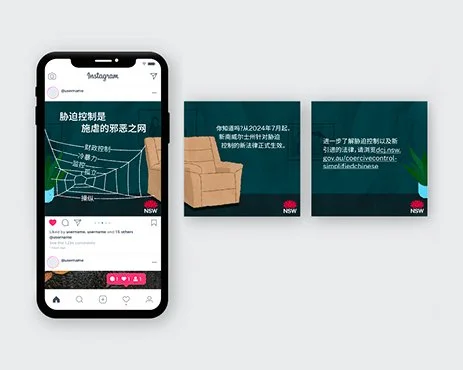Department of Health, Disability and Ageing: COVID-19 CALD content strategy
Client:
Department of Health, Disability and Ageing
Project:
COVID-19 CALD Content Strategy
Industry/sector:
Government
Date of execution:
May 2023
Services:
Communication strategies, community engagement and public relations
At a glance
Cultural Perspectives led a national consultation process to inform the development of a content strategy for Culturally and Linguistically Diverse (CALD) audiences during the ongoing delivery of COVID-19 and COVID-19 vaccine information.
Our approach integrated online consultations, interviews and community research, delivered through culturally-competent methods and tools, to identify best-practice recommendations for translation accuracy, resource accessibility and community trust-building. The resulting insights helped shape a more equitable and responsive content framework.
Subject matter
Public health messaging, pandemic communication, health behaviour change and translation strategy.
Demonstrated expertise
Consultation facilitation, stakeholder engagement, insights synthesis and content strategy development.
Project description
Objectives
To develop an inclusive, evidence-based CALD content strategy to support the Department’s delivery of timely and trusted COVID-19 health information. Ensure that translated content was not only accurate but also effectively placed and readily accessible across community touchpoints.
What Cultural Perspectives delivered
A national consultation insights report summarising stakeholder feedback and community recommendations
Strategic advice and practical tools for improving translation accuracy and website resource placement
Seven evidence-informed recommendations for future CALD content delivery and communications strategy refinement.
Key activities
Stakeholder engagement
Cultural Perspectives conducted a multi-tiered consultation approach with CALD stakeholders:
7 x 60-minute consultations with CALD Advisory Group members
22 x 120-minute consultations with community peaks, funded agencies and CALD sector representatives
6 x 60-minute interviews with inter-departmental representatives.
Audience research
Quantitative survey distributed nationally among CALD audiences
Qualitative research through primary data (focus groups, interviews) and secondary data (desktop report analysis).
Consultation toolkits
Three tailored tools were developed to structure discussions, build rapport and extract audience-specific insights.
Data analysis
Findings were analysed by audience segment to ensure that recommendations addressed the unique needs, barriers and communication contexts across CALD communities.
Key outcomes
Themes identified
Insights were categorised into key thematic areas, including:
Access and delivery of information
Cultural and linguistic content suitability
Website usability
Translation workflows
Data equity and intersectionality.
Audience-specific learnings
CALD Advisory Group - Explored the evolving role of advisory partnerships and highlighted the need for co-designed strategies and clear information equity goals
Community peaks and sector partners - Emphasised the importance of localised engagement, tailored messaging and CALD-specific channels
Inter-departmental stakeholders - Flagged gaps in existing communication toolkits, the need for a live content style guide, and under-utilisation of CALD-facing social media assets.
Strategic recommendations
The final report presented seven actionable recommendations for the Department and Biotext, supporting future pandemic and public health communications with CALD communities.
IAP2 spectrum of public participation
Above: The COVID-19 CALD content strategy fell within the consult phase of the IAP2 spectrum of public participation.






